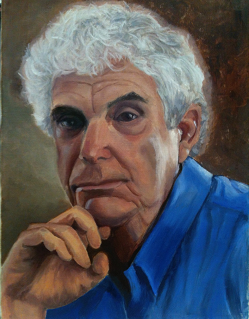When Peter V. Ueberroth reflects on the legacy of the 1984 Olympics, he remembers the tens of thousands of volunteers who spent memorable weeks bringing the disconnected communities of Southern California together.
Ueberroth, a corporate executive and entrepreneur with an eye for marketing, was picked by Los Angeles leaders to organize and run the games. The Olympics were becoming a white elephant, but Ueberroth saved them. He put the games on a sound financial footing by using existing facilities, such as the Memorial Coliseum, and by persuading corporations to pay for sponsorships, which gave them the privilege of using the Olympics in their advertising. The ’84 games were a uniquely privatized event; no public funds were spent. The games ended with a surplus, some of which is still being used for youth sports in Southern California.
Now Los Angeles is bidding to host the 2024 Olympics and the accompanying Paralympics for athletes with disabilities. L.A. is in stiff competition with Paris. The Los Angeles Olympics Committee has proposed the Ueberroth plan to use existing facilities, including UCLA and USC, and private funds. The International Olympic Committee will pick the winner in September. (President Thomas Bach hinted that the IOC might award hosting rights to both the 2024 and 2028 games at once. The Los Angeles committee said it had heard nothing formally and was bidding only on 2024. Paris 2024 co-chairman Tony Estanguet said: “We can’t accept ’28. It’s not possible.”)
David Wharton has reported in the Los Angeles Times how games chairman Casey Wasserman, grandson of entertainment tycoon Lew Wasserman, helped raise $30 million to begin the 2024 L.A. campaign. Wasserman lined up support from state and local officials, who embraced the idea of privately financed games. They would be paid for by the sale of tickets and broadcast rights, the licensing of Olympic products, and by a significant contribution from the International Olympic Committee. A study by Beacon Economics and the UC Riverside School of Business predicts huge gains in business and tax revenue from the games, and foresees ticket sales of between 10 million and 12.5 million — a record.
Winning International Olympic Committee support might be difficult. “Olympic politics can be unpredictable,” Wharton wrote, “with decisions made by an odd mix of bureaucrats, former athletes and royalty.” Paris, like Los Angeles, has venues and other facilities ready to go. International betting sites favor Paris to win.
Public support in Southern California seems strong. A February 2016 poll by the Loyola Marymount University Center for the Study of Los Angeles showed that 88% of those surveyed supported bringing the games to L.A. Those who are not Olympics fans, however, doubted if putting together a successful bid was worth such an intense campaign.
I wondered what Ueberroth, who isn’t part of the current effort, had to say about the benefits of the ‘84 games. I reached him by phone at the Newport Beach offices of the Contrarian Group, an investment firm he heads. We hadn’t talked in years. “The lasting impact of the ‘84 games was that the citizens took them over — 30,000 unpaid volunteers,” he said. “When you have a major event and you get leaders from every part of the community, when you walk down the street with people like that, you are assured of success.
“We had a spirit of hospitality to visitors and an unbelievable ability to work together,” Ueberroth added. For example, he said, drivers at the events were “unemployed college students or retired veterans, all happy to participate.”
The 1984 games, Ueberroth said, were inspired by the 1948 Olympics in London, known as the “Austerity Games.” The city was poor and battered by World War II and the Blitz. King George VI brushed aside pessimists and insisted the games would be a sign that Britain was recovering from the war.
London in 1948 was not Los Angeles in 1984. But L.A. was having its troubles, too. Aerospace, the heart of its industrial might, was beginning to decline. Southern California needed a morale boost, Ueberroth said, and the games provided it.
The world today is much different than it was in either 1948 or 1984. Donald Trump is president, and he and his administration are hostile, or at least unwelcoming, to immigrants, particularly Muslims. Not only does Trump’s immigration plan target those from Muslim-majority countries but customs officers seem to be singling out Muslim scholars, business people and family visitors.
Trump has said he supports L.A.’s bid for the Olympics. “They wanted to have an endorsement from me,” Trump told Westwood Radio One, “and I gave it to them very loud and clear. I would love to see the Olympics go to Los Angeles. I think that it’ll be terrific.”
Mayor Eric Garcetti said he doesn’t think Trump’s immigration policies will hurt L.A.’s bid. Garcetti, who strongly disagrees with Trump on climate change and immigration — and who supports the LAPD’s refusal to enforce federal immigration laws — told the Jewish Journal that the president is “very supportive of the Olympics … [and has said] that he will make sure that athletes could come in.”
Los Angeles’ greatest obstacle is Paris. It is offering Olympic sites throughout the city — all but a few of them already built — including the 81,338-person capacity Stade de France for opening and closing ceremonies and track and field events.
Security will be an issue in both cities, but most of that focus is likely to be on Paris. One night in 2015, suicide bombers attacked the Stade de France during a football match and the Bataclan theater during a concert, as well as restaurants and bars throughout the city. A total of 130 people were killed and several hundred more were wounded, as many as 100 of them critically.
In Paris, the venues would be linked by accessible public transportation, including the Paris Metro and driverless electric buses.
Los Angeles is improving highways and expanding public transportation with previously planned projects, including an extension of the light rail Green Line to Los Angeles International Airport.
If L.A.’s bid wins, the Olympics could leave a surplus, just as they did in 1984. That money provided funds to create the LA84 Foundation, which has used millions of dollars to pay for playing fields, tennis courts, coaches and equipment for young people whose parents could not have afforded youth sports otherwise.
“We’ve helped 3 million Southern California kids,” said Renata Simril, president of the foundation. “We’ve supported 2,200 nonprofits, trained nearly 80,000 coaches and restored soccer fields and pools, all for underserved kids.”
Among them were Venus and Serena Williams, who learned tennis in Compton and were helped in their early years by the Southern California Junior Tennis Association, a beneficiary of the LA84 Foundation.
If Los Angeles hosts the 2024 games, this generation of Olympians might leave a legacy just as fine.

























Comments